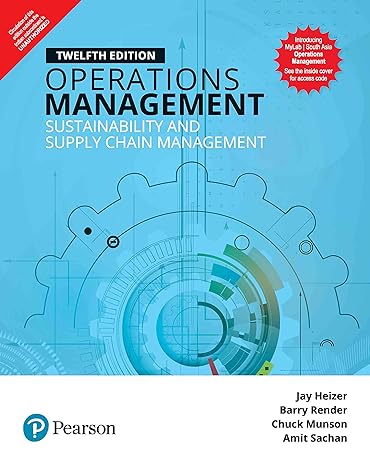Small and medium enterprises (SMEs) have played a major role in economic growth across the globe. They
Question:
Small and medium enterprises (SMEs) have played a major role in economic growth across the globe. They are major contributors to national economies in terms of their contribution to employment, production and exports. Indian SMEs also have the same strategic importance. With the growth in business, the need for superior technology as well as planning tools are required and typical enterprise resource planning (ERP) products cater to these requirements. Many SMEs in India have decided to adopt one or another enterprise resource planning (ERP) system to improve their businesses, but implementing an ERP system can be a demanding venture. ERP implementation has always been an intricate process and is a major challenge. Even when ERP systems can bring competitive advantage to organizations, it is the high failure rate in ERP implementation that is the major concern across the Industries where it is implemented. Based on survey of Indian SMEs, Critical success factors (CSF) for implementing ERP are identified. Various CSFs are grouped in three broad factors they are organisational factors, technological factors and people factors.
◆ Comprehensiveness of software development/process integration plan;
◆ Significance of age of IT infrastructure;
◆ Comprehensiveness of data migration plan; and
◆ Extensiveness of system testing.
People factors are significantly related to the success of ERP implementation in Indian SMEs are
◆ Blend of cross-functional employees in the team;
◆ Extent of empowerment of decision-making team;
◆ Significance of morale of the implementation team; and
◆ Exhaustiveness of user training.
Organizational factors are significantly related to the success of ERP implementation in Indian SMEs are:
◆ organization’s adaptability to changes;
◆ Involvement of top management;
◆ Degree of customization;
◆ Efficiency of business process re-engineering;
◆ Exhaustiveness of contingency plans;
◆ Clarity in definition of milestones;
◆ Clarity in evaluation of milestones;
◆ Alignment of ERP package with business processes;
◆ Comprehensiveness of implementation strategy;
◆ Involvement of consultant in implementation strategy;
◆ Clarity of project status disclosure; and
◆ Appraisal of clients about ERP strategy.
Identification of CSFs will impact timely completion of the ERP implementation and overall higher Success rate will increase. These two will lower down the cost and thereby resulting in increased Profits. SMEs can plan for the implementation in a more systematic way thus reducing time and cost overruns and in turn will help them achieve a higher resource utilization and profits that while implementing it in the traditional method.
Discussion Questions
1. What is the importance of SMEs in economic growth of the country?
2. Discuss the various factors related to the success of ERP implementation?
3. What is the impact of identification of CSFs on completion of the ERP implementation?
Step by Step Answer:

Operations Management Sustainability And Supply Chain Management
ISBN: 234357
12th Edition
Authors: CHUCK MUNSON & AMIT SACHAN AND . JAY HEIZER , BARRY RENDER





